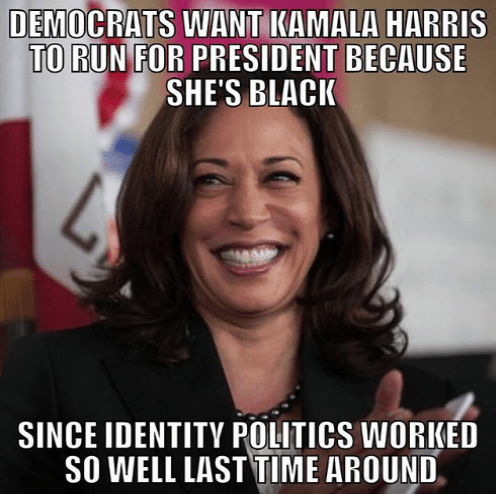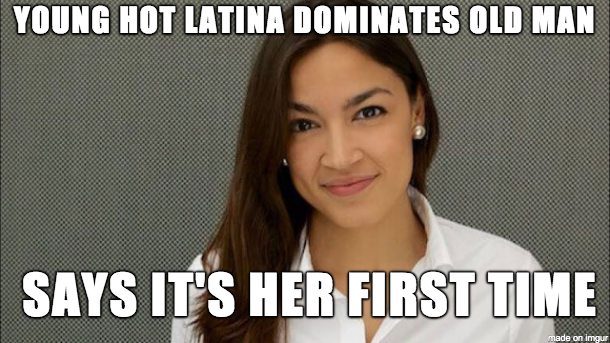As more women hold elected positions especially in Congress, they also face backlash from different forms of media representation. Two women in particular, Kamala Harris and Alexandria Ocasio-Cortez, are oftentimes heavily scrutinized so that their political career can be derailed. They are commonly accused of identity politics—the notion that they seek votes solely because of they are people of color. As a response to critics, Ocasio-Cortez stated in her campaign video that “there’s a difference between [someone] saying, ‘Vote for me, I’m Latina.’ and saying, ‘Latinos deserve equal representation and a seat at the table’ (0:45-48).

She argues that Latinos deserve to have power to represent their own communities and address issues that others have the privilege of not experiencing. Despite successfully demonstrating her intelligence to both her colleagues and the American public, the media continues to hold her to nearly impossible standards.
Historically, representations of Black and Latino women in media have promoted racism to the American public. Particularly for African-Americans, some controlling images focuses on poverty and working-class femininity. In fact, many Black women are depicted as “bitches,” at term intentionally used to defeminize them. Additionally, circulated images that associate black women with poverty influences assumptions that drugs are heavily used by their demographic. However, middle-class women of color are exempted from this narrative and are instead hypersexualized.

Karrin Anderson would consider this image as an example of pornification because it is meant to reach a mass audience and objectify her. In addition, pornification functions to “reduce a woman’s political agency” and construct women candidates (Anderson 337). While many candidates attempt to connect with citizens in popular culture, most notably in talk shows, women are especially held to higher standards because they are often depicted as people who are unfit to have power. According to Kira Sanbonmatsu, studies demonstrate that women candidates are more likely to receive attention to their physical body and social life than men are (Class 4/24).
In a YouTube video where Kamala Harris appeared in Late Night with Seth Meyers to speak about her dissatisfaction with William’s Barr’s Russian investigation summary, many of the comments attacked Harris. Specifically, users compared her to World Wrestling Entertainment (WWE) wrestlers, associating her blackness with masculinity.



Such comments reinforce how mass media generates class-specific images of black women which promotes racism. This is not the first time that a black woman has been associated with masculine features and disorder. In Patricia Hill Collin’s “Black Sexual Politics,” she means how the media was able to paint Anita Hill as “an exemplary career woman [who] became derogated as a dangerous, out of control threat to social order” (143). These narratives delegitimize black women who simply want to get their voices heard. Additionally, they further promote racist stereotypes that discourage black from claiming their agency.